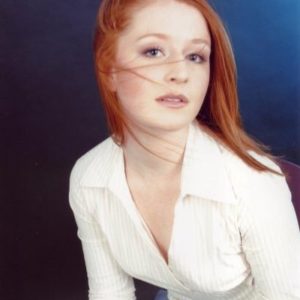
Rachel Pedley-Miller
The Director of Get the Chance Guy O’Donnell recently got the chance to chat to Rachel Pedley-Miller, founding director of Avant Cymru. Rachel discussed her career to date, Blue Scar Avants latest work in development, the support she has received from Angela Gould/RCT Theatres and the importance of working with local communities in all aspects of her professional practice.
Hi Rachel great to meet you, can you give our readers some background information on yourself please?
I started dancing aged 2, my Mam had learned to dance in the Ponty YMCA with Pat and Heather Rees and she wanted me to learn to dance as well. I loved every dance class and by my teens I was training 6 days a week in various styles and had started drama and music lessons. There were also various community arts opportunities I could join in with to keep developing my understanding. I had amazing teachers who trained me to teach, which meant I could afford to do extra classes, through gaining work at the dance studios.
I was really lucky to start training under Maggie Patterson through the Pineapple Performing Arts Troup. Maggie created opportunities for me and the rest of our crew to gain professional work opportunities while training, we danced for TV, Film, theatre and live events. It was here that I started training with Jimmy Williams (lockin’ dancer) and Kate Prince (of Zoonation) who started my introduction to Hip Hop Dance.
It was great to grow up in the dance community, it taught me the importance of sharing experiences, giving back and that you can always continue to learn, not only because there so are many dance styles to learn, but also because these styles have come from diverse communities and learning about the history behind the techniques is just as important as performing the moves themselves.
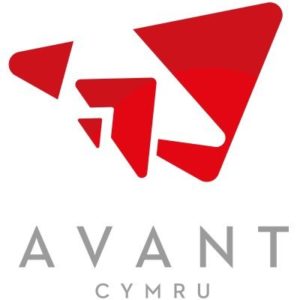
You are one of the directors of AVANT Cymru and support a lots go great community arts activity in the Valleys, could you tell us more about this work?
During the school holidays I spent a lot of time with my grandparents. My grandfather is very community minded, he was part of ‘Cor Meibion Male Voice Choir’ (who sing at community events all over Wales and beyond, including the Principality Stadium before internationals!) He also looked after the community, shopping for the elderly and doing carpentry work for others as favours to friends. His community ethics have played an important part in my desire to come home to the Rhondda. It has created a desire to make work with a community who create opportunities for themselves and who love to celebrate culture.
Avant was founded at the end of 2014 when I had moved back home to the Rhondda and had started to go to networking opportunities around Wales. At these networking meetings (such as NTW TEAM workout, Ponty’ Arts meetings, Sherman JMK training opportunities, Equity Branch meeting, What’s Next Valleys meetings to name a few) I met likeminded artists such as Alan and Darius (co-directors) who wanted to create high quality, relevant and imaginative work.
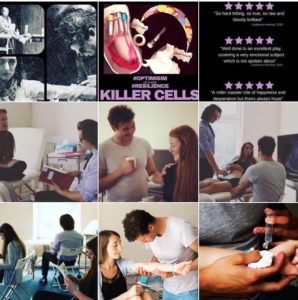
Killer Cells
Our work includes ‘Over By Here’, ‘Killer Cells’ and now ‘Blue Scar’. In all Avant’s work we create opportunities for either our students from our weekly classes or for the community to shape the shows. We firmly believe in going out into the community to hear what is relevant and working with the community to develop art that is wanted and needed. Even though we are theatre makers, this means that we have also collaborated with other art styles. For example visual artists such as Claire Louise Prosser, on projects such as the Bus Stops in Tonyrefail. When researching for Over By Here we found out that the public wanted the beaten up bus stops to be more colourful, Claire came on board and led project Bus Stops which led to one teenager commenting “Thank you for doing this, the bus stops show that people care and it makes me feel safer in town”.
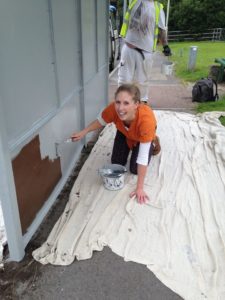
Artist Claire Louise Prosser
We are also about to undertake a film project with Gary Lewis called ‘Land of Our Fathers’ for the Age Cymru Gwanwyn Festival. We have chosen the media of film as the residents of the care home we will be working with may not be able to access live performances, by creating a film this can be played back to them in their care situation.
Avant are a forward thinking theatre company who have plans to create versatile work in the Rhondda and perform this work locally, nationally and internationally, to celebrate the Rhondda and its people in all sorts of creative ways. We are really excited to be working with RCT Theatres on a number of these projects.
More recently you have been working towards a sharing of a production called Blue Scar, I believe this production involves Urban Art Forms is that correct?

Blue Scar is a Hip Hop inspired project. We were asked to research and develop a hip hop dance project with RCT Theatres and Creu Cymru’s welsh dance consortium. Our first plan of action was to speak to the community. We were inspired by the history of ‘Lockin’, which was created by young people at the end of the 1970’s early 1980’s watching cartoons such as the Loony Toons and recreating the actions that the cartoon characters performed. The style of dance is very animated with big facial expressions and poses. So we wanted to know what young people in the late 1970s/early 80’s were doing in the Rhondda to make Welsh hip hop.
We visited audiences at the Park and Dare and Coliseum before the Pantomime, we went to the local libraries and we spoke to people on Rhondda Facebook groups. The answer that came back was that the children liked to play up the mountain, occasionally some of these games resulted in cuts and bruises and because of the coal dust they often resulted in blue scars.
Blue scars became a point of discussion, miners had them from their work down the mines, but they were also a mark of the area. People spoke proudly of the time they earned their blue scar, from falling off their Gambo (go cart) or from playing kiss chase on the tip. These stories became our inspiration.
We then set out to speak to students in our regular classes and at Treorchy Comp who hadn’t heard of blue scars and wanted to help us make the show relevant to their generation. So as part of the R&D we worked with the young people and involved them to lead the narrative, asking them how they share stories at home. Niamh performed with us on the night of the R&D, her character learns of how her mother gained her blue scar playing up the mountains. Niamh’s grandmother came to watch the show, which prompted her to tell Niamh tales from when she was young, and how she too used to play up the mountain.
Blue Scar, shaped by the community became a cross generational project because of the narrative, which made it vital for us to work with the right artists. To really create a Welsh hip hop piece we wanted to blend traditional welsh music and dance with hip hop styles. We did a call out for artists and we began to develop ideas.
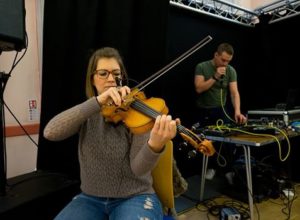
Angharad Jenkins and Dean Yhnell working on Blue Scar
James Humphreys created a script based on the comments from the community, Gary Lewis created a film showcasing Avant’s students participation. Dean Yhnell from BeatTechnique got in contact; he had previously worked with musician Angharad Jenkins on the 10 minute musical project produced by Leeway Productions.
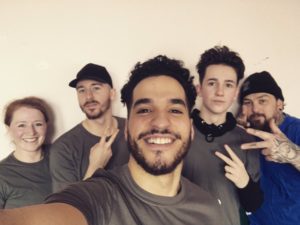
The Blue Scar Dancers
They were keen to work together again, working with Darius they created the tracks and Bethan England came in to sing. Tommy Boost, Ahmed Zada and myself were able to bring three different hip hop techniques breakin, lockin and poppin and then we were lucky to bring in BBoy Slammo and Patrick Thomas. BBoy Slammo has been teaching breakin in the Rhondda for over a decade and Patrick is a member of his crew, having these two bboys on board has been vital to showcase the legacy of hip hops dance community that already exists in the Rhondda. Bboy Slammo is an internationally known breaker who is one of the founding organiser for Breakin’ the Bay at the WMC.
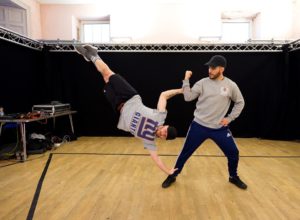
Blue Scar
The whole team were able to bring different elements to the project and inspired by the communities ideas we got to work, creating a Welsh hip hop dance piece.
Angela Gould, (Theatre Programme and Audience Development Manager RCT) and the RCT Theatres staff have been strong supporters of your career, why is the support of someone like Angela important?
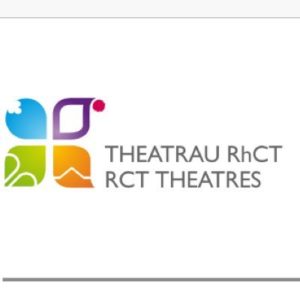
Angela Gould has created the #CreativeHub at the Park and Dare, which is creative space for companies to produce new work. The Park and Dare staff are the most amazing team an artist could wish for. The tech team provide staging and tech, they bend over backwards to make sure we have everything required to provide the best audience experience possible. The venue team are amazing, Tom helps to get in place translations and timetables so everything is accessible and the team help produce programmes and marketing so we can facilitate the community outreach. Angela is incredible, she is there from the start to discuss ideas, then bends over backwards to mentor and challenge us. She takes the time to listen to audiences and know our community, we are so grateful to Angela and RCT theatres for their support. We firmly believe in collaboration and the #CreativeHub has been an amazing place for Avant to grow and develop. We are looking forward to producing Killer Cells over the summer and developing Blue Scar into a production for next year together with RCT Theatres.
Get the Chance works to support a diverse range of members of the public to access cultural provision. Are you aware of any barriers to equality and diversity for either Welsh or Wales based artists?
We love to invite Get the Chance to all stages of our work, we are aware of the fantastic work they are doing promoting theatre and culture in Wales, demonstrating that there is a variety of cultural experience that appeals to diverse audiences. We know the reviewers have the opportunity to see a range of work and are informed on current theatre practices, so their reviews help shape future developments. For example Get the Chance critic Gemma Treharne-Foose came to watch the small production of Killer Cells, we had been working on the characters and story and her feedback confirmed to us that the digital aspect needed investment. So for the 2017 tour we have acted on this feedback and we are investing in the digital aspect of the story.
getthechance.wales/2016/09/29/review-killer-cells-gemma-treharne-foose/
We have found that fear is a barrier for new audiences because the unknown can make people anxious. By inviting Get the Chance in the stages of development and by sharing our ideas and plans we are able to inform new audiences, so they are guided and have an idea of what to expect when they attend a show. Get the Chance is breaking down these fears and bringing new audiences to the theatre.
Many thanks Rachel. If you were able to fund an area of the arts in Wales what would this be and why?
This is a difficult question as I would like to see more spending in the arts all over, I believe arts and participation is good for health, wellbeing education and regeneration. I would like to see more funding going into buildings such as the Park and Dare. They have already started work on improving the building, which includes new carpets, paint in the foyer and the lift is being rebuilt, however further funding is still needed to help complete the other jobs the team have planned.
http://www.rct-arts.co.uk
I’d love to see money put into a collaborative CPD programme. In dance, for example we have fantastic dance teachers and studios, but it would be amazing to have collaborative spaces such as Pineapple or Broadway Dance Studios in Wales, where the public can access dance and professionals can access the training needed 7 days a week and during the day time. It is important to create new training opportunities in Wales, so we can continue to learn and develop.
What excites you about the arts in Wales? What was the last really great thing that you experienced that you would like to share with our readers?
I truly believe that Wales is an exciting country for the arts. There are so many cultural opportunities and emerging companies and individuals who are being shaped by established and experienced venues and organisations. There are networking opportunities, training performances and jobs it is evident that the people of Wales, want to make cultural experiences happen in a variety of places and in a variety of ways. From engaging in local opportunities in the Rhondda, taking part in Age Cymru’s Gwanwyn Festival, being a Sherman 5 member at the Paul Hamlyn Funded project at Sherman Theatre and by being a TEAM panel member for National Theatre Wales. I have personally found that no matter who you are there is a cultural opportunity for you. It is hard to name one event because the variety of experiences is exciting. I know that I am looking forward to seeing ‘Hard As Nails’ at the Park and Dare and ‘Killology’ at the Sherman, I have my tickets booked for both!
I am really proud to say that Avant are part of the Welsh art community, creating work in the Rhondda, with fantastic partners in RCT Theatres, at the Park and Dare and traveling to exciting venues such as the Sherman, the Willow Globe and Volcano later this year.
 (2 / 5)
(2 / 5)

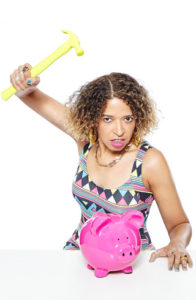

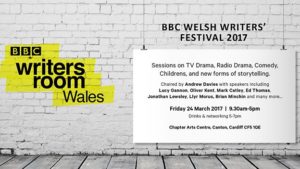

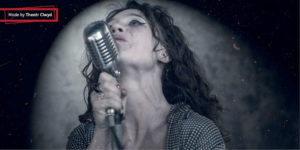
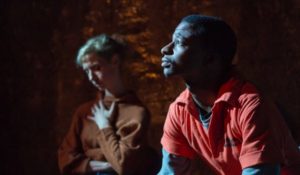
 (4 / 5)
(4 / 5)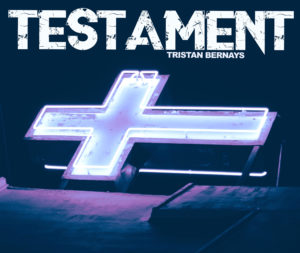
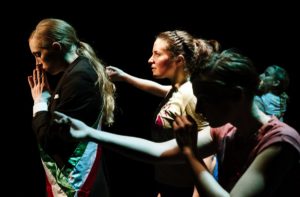
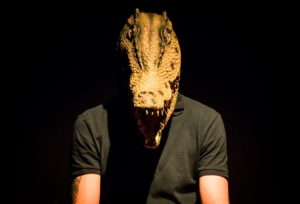
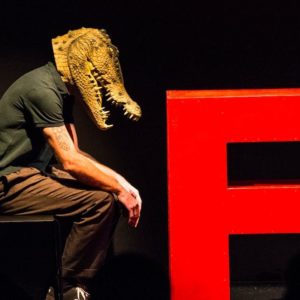
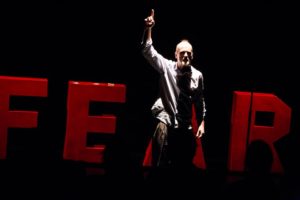
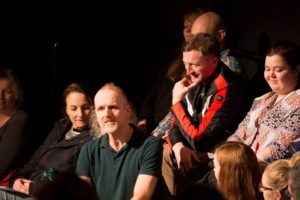
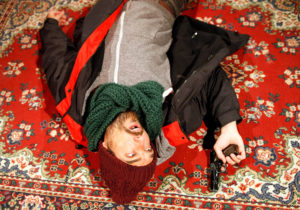
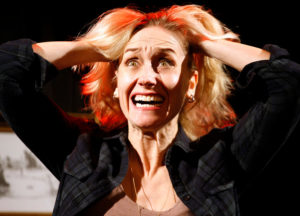
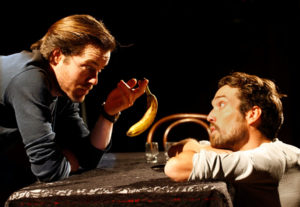
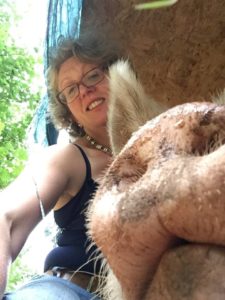
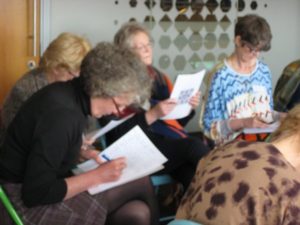

 (3 / 5)
(3 / 5)







